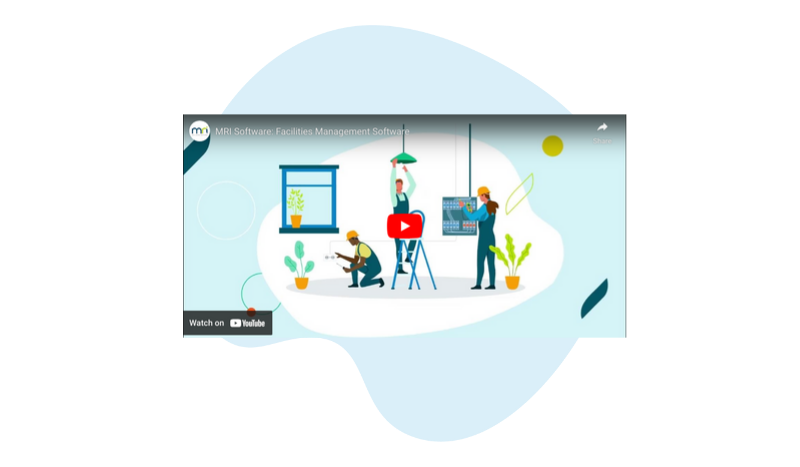COVID-19 and social distancing in the UK residential sector
The impact of the coronavirus pandemic is significant and varied across the real estate industry. For organisations operating in the residential space there are a number of challenges. Businesses need to consider the safety and well-being of their employees, of customers they interact with face-to-face, plus the residents, leaseholders, agents, landlords, property managers or other stakeholders they serve in their day-to-day activities. And that’s not to mention efforts to ensure their business continues as close to normal as possible.
Given the current social distancing guidelines from the government, and with more and more companies putting work-from-home policies into action for their teams, those involved in managing residential property will naturally see an increase in their reliance on digital solutions, communication and interaction. Indeed, the residential sector has seen significant investment in technology in recent years, and organisations that have been driving innovation and putting proptech at the heart of their operations should now expect to rely on that software to help them reduce disruption and achieve a degree of business continuity.
Here are some areas to consider, and how your tech can help you as you try to navigate the obstacles and uncertainty the COVID-19 outbreak has introduced:
Customer service
In the midst of so much disruption, is it even possible to maintain expected levels of service without disruption for your customers? Thanks to the tech available today, the answer might actually be yes. It’s highly likely that you’re using digital platforms for mass email, SMS and other forms of direct message – and you’ll certainly be looking at how you can expand that to fill potential gaps. Going further, automation will be key. For example, you can put programmes in place to deliver initial replies to queries, either offering information or providing a first-response before a member of your team goes deeper. This sort of reassurance could prove invaluable in such an uncertain climate. Where software allows (and you should have various options here) you can also look to digitalise processes for your customers. Common options are payments, maintenance requests and document sharing/signing – all of which can be done, end-to-end, with no need for in-person or even telephone interaction.
Customer interaction
With additional focus placed on quickly and effectively responding to queries, it’s important you don’t forget the need to provide customers with a proactive, clear and consistent stream of messages, keeping them fully updated with the latest news and developments. Of course, key communications on the subject of COVID-19 will be front and centre, particularly for those in self-isolation – but so will be sharing information from the wider community and society of which your stakeholders are a part. Of course, this would be paramount were you to find yourself dealing with a case or cases of coronavirus directly. If you use a resident portal, push its capabilities and ensure your customers understand it’s the place to go for updates such as information on planned maintenance, new guidelines on use of common areas, measures being taken to protect residents in buildings, or even the impact of a local lockdown were it to reach that stage. Alternatively, or as well, use your software to push content out through other channels such as your website. Crucially, you should also utilise your solutions to record your broadcasts and interactions so you have complete records of conversations for audit and potential compliance purposes.
Remote working
SaaS is the standard option when it comes to modern software, and it’s not a new trend. The fact that companies and individuals are transitioning to work from home, and are able to do so in such great numbers so quickly, is testament to how far the industry has come in terms of cloud technology. This flexibility is essential, but it goes deeper. There has never been a more crucial time to be fully aware of the mobile capabilities within your solutions. Can everyone in your business log in remotely? Do you have portals you can utilise? Are there integrated apps you can lean on to make remote working even easier? Understanding your full digital offering, and ensuring staff are fully trained and capable to maximise it, may help keep you ahead of the game and achieve full business continuity as the next few months unfold.
Strategic decision-making
These are largely unprecedented times. Across all industries and sectors, businesses will be feeling the effects of the measures introduced to tackle coronavirus – and real estate is certainly going to be impacted. But, directors and managers can be somewhat reassured by the abundance of data and information available today, and with your tech you have the ways and means to undertake quick and accurate analysis to help ensure you remain agile. As you deem necessary, your software should allow you to monitor metrics in real-time or at whatever frequency suits your approach, giving you the opportunity to spot and address performance problems – whether operational, financial or both. This is always important, but certainly something you can leverage in the current climate to help you navigate the challenges ahead.
These are some general thoughts aimed at encouraging some deeper thinking around how software can be relied upon to help you maintain ‘business as usual’ in this wholly unusual period. The list is not exhaustive, and you should definitely consider and interrogate the full capabilities of your digital products in all areas of your company.
And, don’t forget, you can check back on our dedicated page for the latest updates on the MRI Software response to the pandemic.
Experience Facilities Management without burden or limits
The facilities management sector is constantly evolving, and so are your responsibilities. With inefficient maintenance programs, costly repairs, compliance headaches, and siloed data across multiple systems, it puts you under extra pressure to deli…
